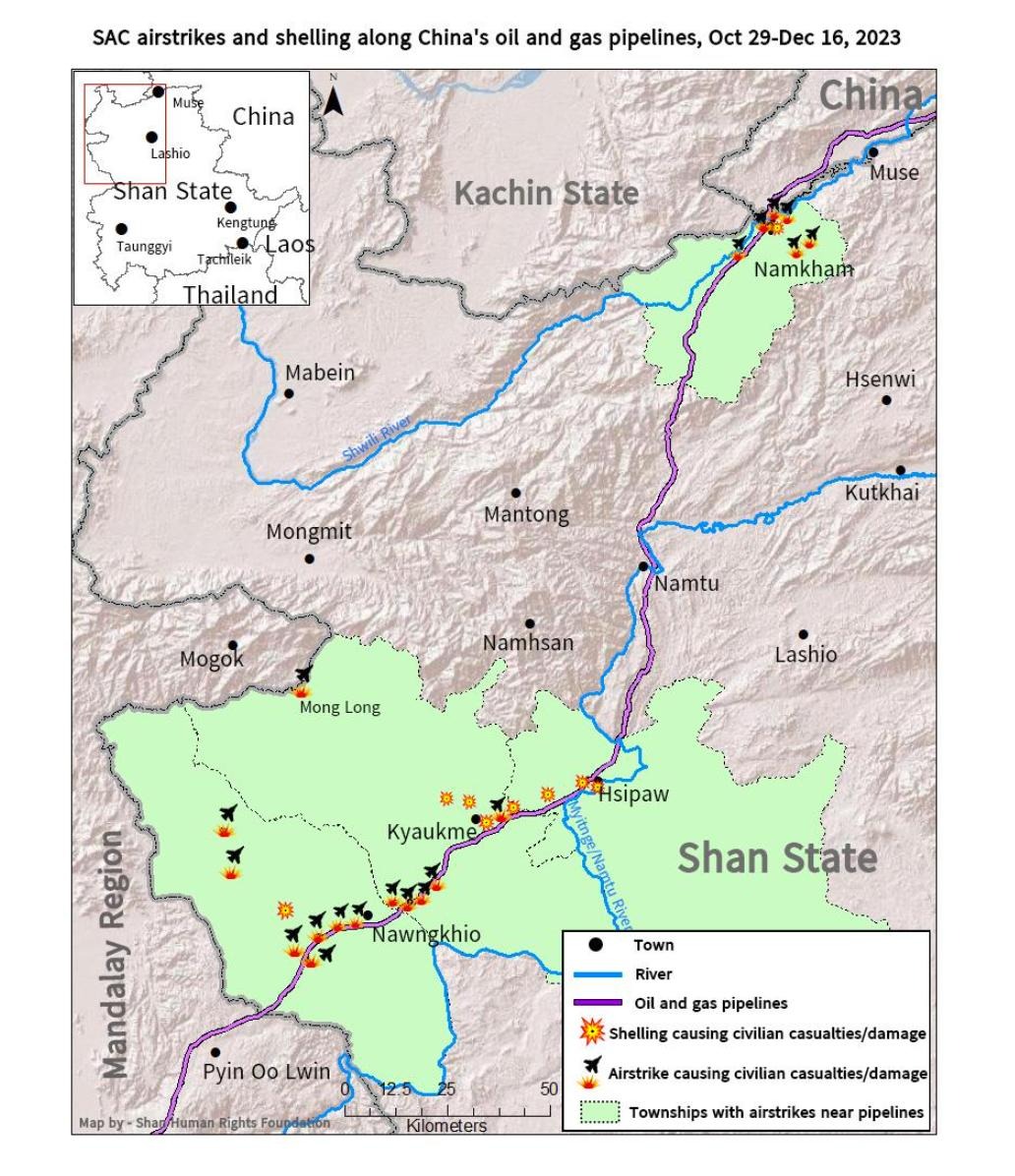Myanmar junta airstrikes and shelling during clashes close to China’s oil and gas pipelines in northern Shan State risk sparking a deadly pipeline explosion, the Shan Human Rights Foundation (SHRF) reported on Thursday.
The pipelines run from the Chinese border city of Ruili (Schweli in Burmese), through northern Shan State, Mandalay and Magwe regions to Rakhine State on the Bay of Bengal in western Myanmar.
The junta is conducting air and artillery strikes in northern Shan’s Nawnghkio, Kyaukme, Hsipaw and Namkham townships in response to the ethnic Brotherhood Alliance’s Operation 1027 offensive launched on Oct. 27.
The bombardment has killed 43 people, injured 45 and destroyed 260 buildings including houses in the past month and a half, according to the SHRF.
Airstrikes close to the pipelines began on October 29, when warplanes bombed Ta’ang National Liberation Army (TNLA) and Mandalay PDF positions in Kyaukkyan village, west of Nawnghkio town on the Muse-Mandalay highway. The southern edge of Kyaukyan village lies less than 100 meters from the pipelines.

Over the next few days, the military launched airstrikes on the villages of Shwe Nyaung Pin and Oom Markha, which lie close to the pipelines in western Nwanghkio Township.
In November, airstrikes destroyed more than 20 houses in four villages close to the pipelines in Kyaukme Township. On Nov. 27, regime warplanes targeted Pu Khar village, which is located just 500 meters north of the oil-gas pipelines.
SHRF spokesperson Ying Leng Harn said there is a high danger that the strikes on villages close to the pipelines will result in a catastrophic accident.
“The military is shelling locations wherever they sense movement or sound. So, it is likely that a shell will fall on the pipeline,” she told The Irrawaddy.
On December 6, five civilians were killed and four injured in an airstrike in Ho Na village in Namkham town. The pipelines run directly beside Ho Na village, only 40 meters from its northern edge.
The repeated airstrikes and shelling so close to the pipelines, which lie only about one meter underground, are heightening local fears that a direct hit could trigger a huge explosion, harming civilians over a wide radius, SHRF said.
“Even when household gas explodes, the scale of damage is huge. If a shell or bomb were to fall on the pipeline, the damage would be unthinkable,” Ying Leng Harn told The Irrawaddy.
She urged international stakeholders, including China, to avoid investing in joint projects with the junta. Their investments were not safe given that fighting against the junta would continue as long as the military ruled the country, she added.
The SHRF reports that residents of villages near the pipelines are currently fleeing their houses amid the threat of junta shelling and airstrikes and growing fear of a pipeline explosion.
Fighting also erupted this month between the Arakan Army (AA) and junta troops at the other end of the Chinese pipeline, in Ramree Island, Rakhine State.

















